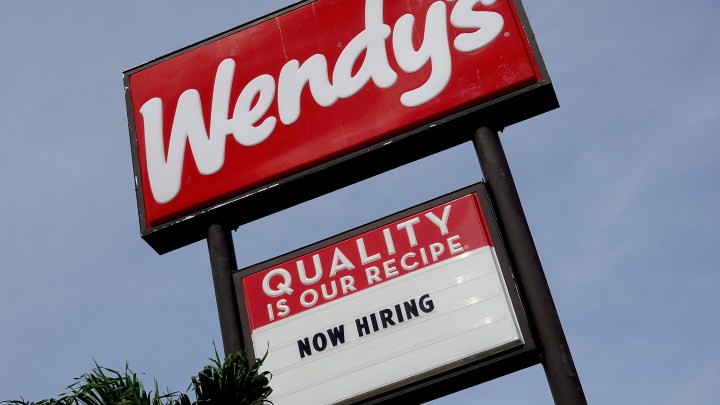
Good news in the latest jobs report: Wages are up, especially in low-paying sectors
Good news in the latest jobs report: Wages are up, especially in low-paying sectors

Down near the bottom of the October jobs report — way below the big headline of the half-million jobs added in October — there was another piece of good news: Wages rose again in October and are now up 4.9% year-over-year.
When the pandemic hit and the economy shut down hard and fast, millions of workers lost their jobs.
Unlike after a typical recession, businesses started reopening and rehiring workers quickly. Now that the latest delta wave is running out of steam, service industries are desperate to hire, according to Daniel Zhao, a senior economist at job site Glassdoor.
“Wage growth over the last year has been strongest in leisure and hospitality, and transportation and warehousing — sectors where we’ve heard the most acute reports of labor shortages, where employers need to raise wages most aggressively to actually attract workers,” he said.
Wages for nonsupervisory and production workers were up 5.7% percent year-over-year.
There’s something really important to keep in mind here: These wage increases are nominal, not real. That’s not to say they’re imaginary; they’re wage increases before accounting for inflation.
And prices have increased, said University of Wisconsin economist and Manhattan Institute adjunct fellow Noah Williams. “Inflation is up somewhere between 4.5% to 5%, probably, year-over-year,” Williams said. “So, yeah, that 5.5% average wage gain is really only maybe .5% to 1%.”
So, not as much in terms of actual purchasing power. Lower-wage service workers are now getting the biggest raises — more than 12% for bar and restaurant employees, around 8% for those in transportation and warehousing.
But those workers are also the most vulnerable to increases in the cost-of-living, said Kate Bahn, director of labor market policy at the Washington Center for Equitable Growth.
“Wage increases that workers have seen recently are positive signs but they have been balanced by the inflation,” Bahn said. “Particularly for workers who … a larger part of their expenditures are things like used cars, fuel, utilities.”
These big wage increases may not continue long-term; Bahn thinks workers will lose leverage as more people come off the sidelines to look for work and employers aren’t as desperate to hire.
There’s a lot happening in the world. Through it all, Marketplace is here for you.
You rely on Marketplace to break down the world’s events and tell you how it affects you in a fact-based, approachable way. We rely on your financial support to keep making that possible.
Your donation today powers the independent journalism that you rely on. For just $5/month, you can help sustain Marketplace so we can keep reporting on the things that matter to you.











